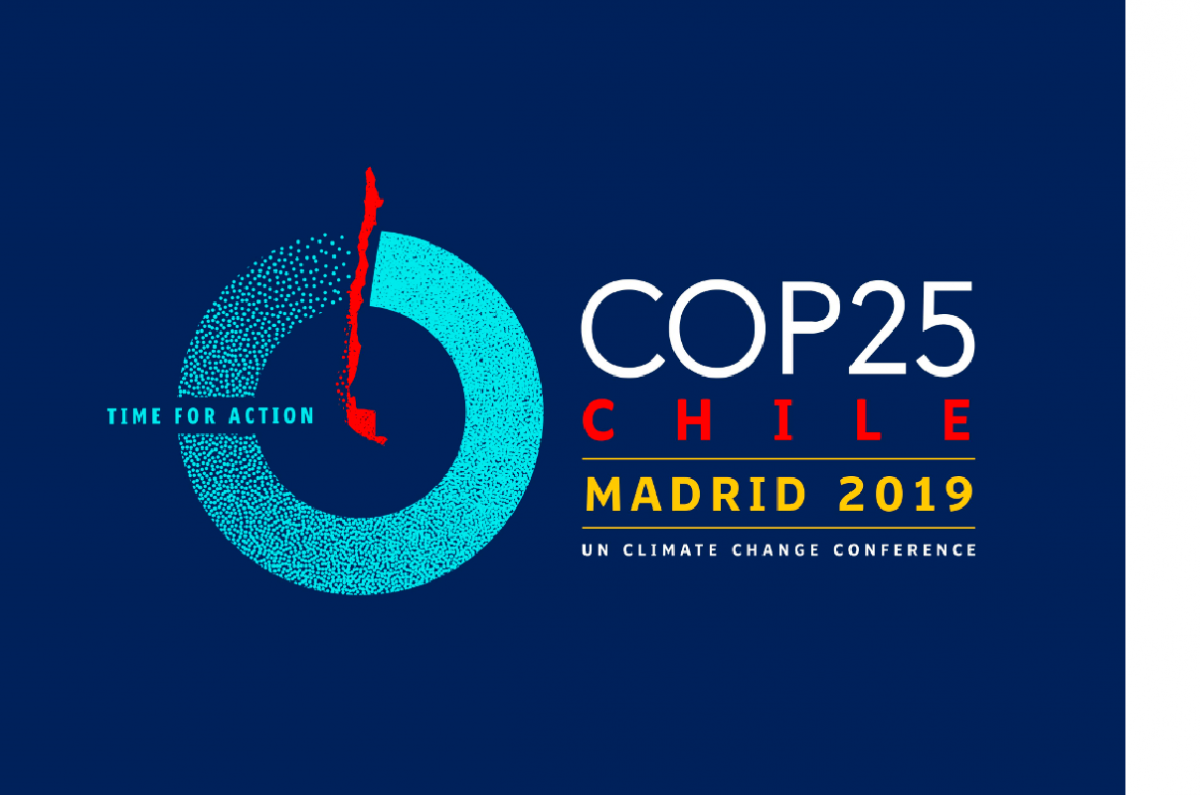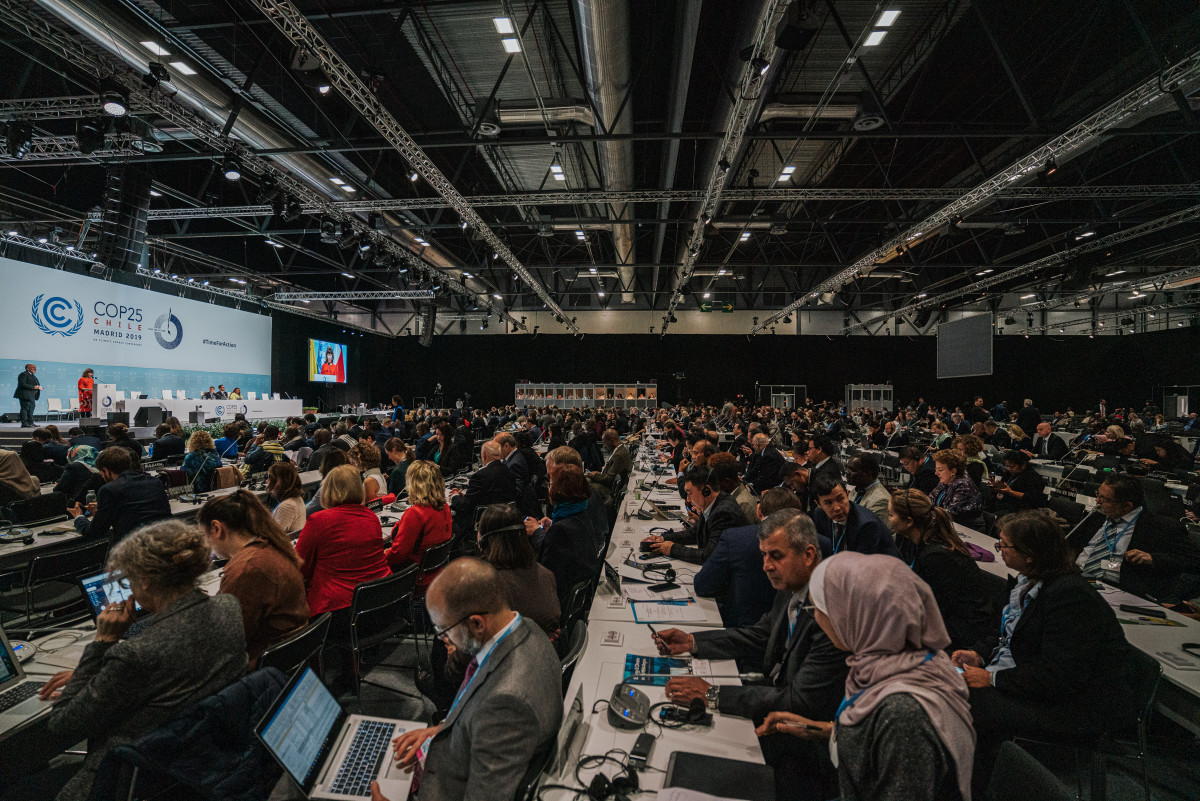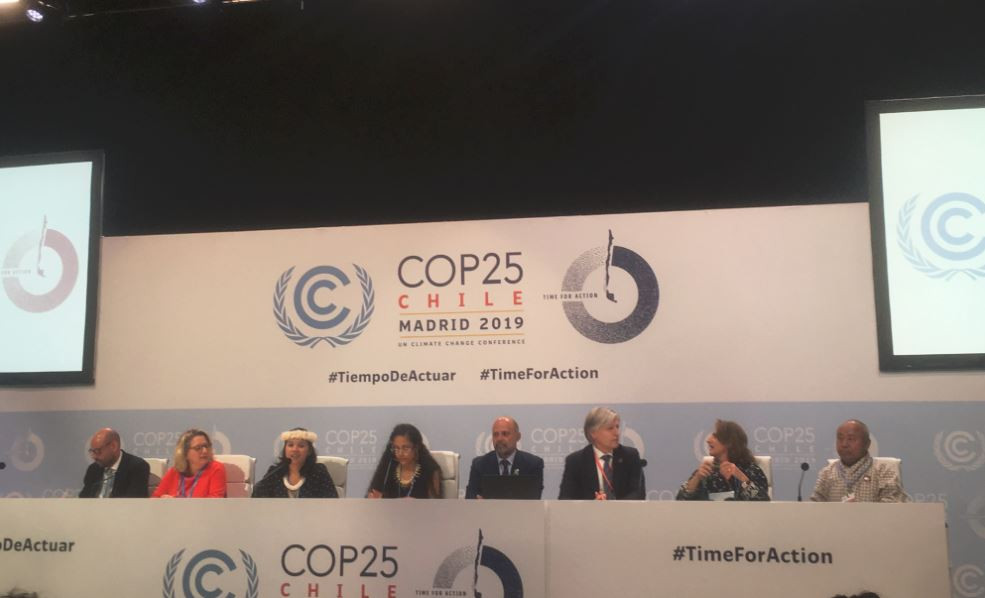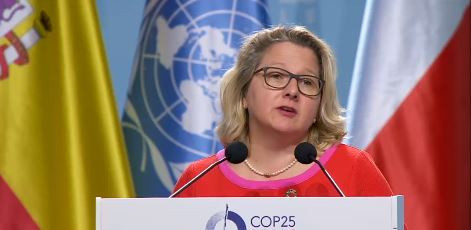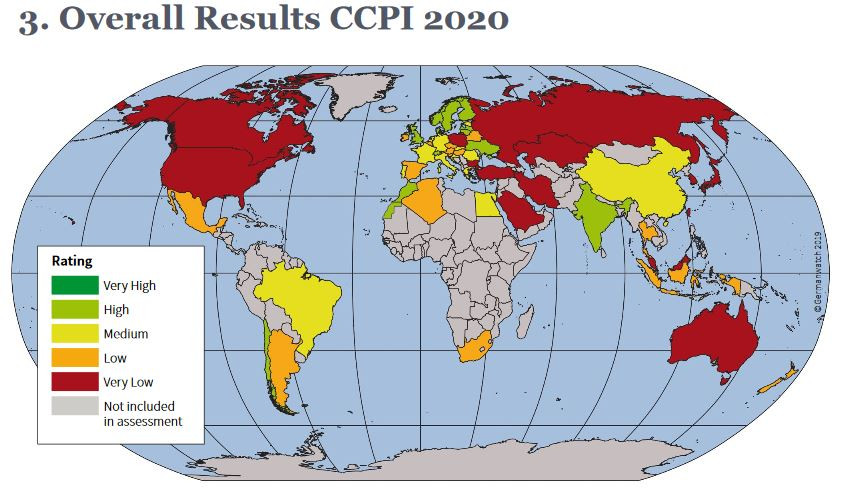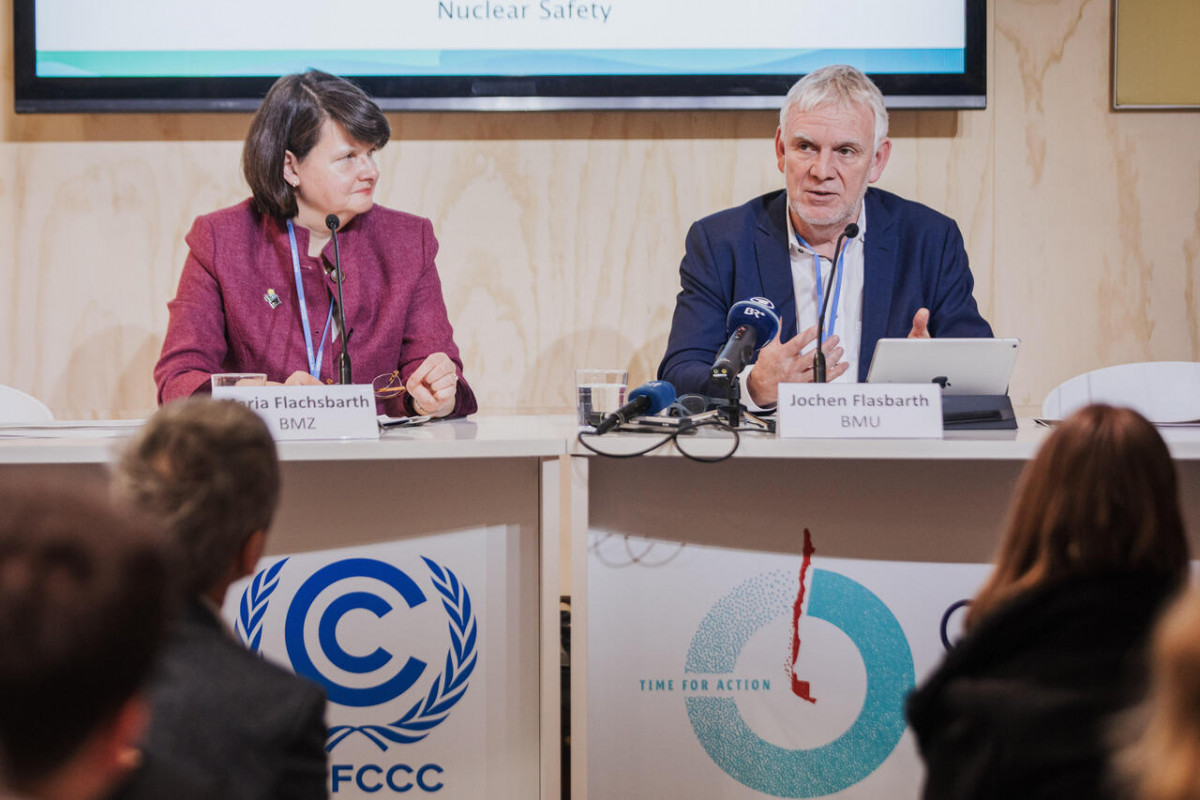COP25 blog - Germany says worst has been avoided in Madrid, urges UN summit must change
"Damage containment" - German media reactions to COP25 result
The UN climate conference COP25 ended with a result many observers in German media regard as a least common denominator that fails to make relevant progress in implementing the Paris Agreement or forging international consensus on the need to act on global warming. But there is also hope that resurging civil society action and individual efforts by states and other actors could ultimately show a way out of the current predicament. A review of COP25 commentaries from Germany:
"Describing the UN as the 'international community' is no longer appropriate. The community is shattered," Daniel Wetzel comments for Die Welt. He says the "inglorious" finish of the COP25 in Madrid shows that global multilateralism has been a "false hope" in the battle against climate change. Instead, regional initiatives "for long have shown their effectiveness" and make the enormous UN climate conference with tens of thousands of participants a mere "squandering of money" that could even turn out to be undermining climate action. "We have to do away with them," Wetzel concludes.
Madrid ultimately turned out to be "damage containment," Alexandra Endres writes for Die Zeit. In a year when millions of people around the world turned to the streets to protest for more ambitious climate action, the gap between what is necessary from a scientific perspective and what seems possible to achieve politically at a UN climate summit has shown to be wider than ever before, she says. "What a disaster."
Instead of marking a progressive fight against climate change, COP25 was a "defensive battle" against regression, Werner Eckert comments for the public broadcaster ARD. "The result comes close to a failure," Eckert says, adding that the world appears divided into states that acknowledge the need for action and where climate change takes centre stage in national politics and those that seem not to feel any pressure and put national interests ahead of a joint international effort.
The climate summit in Spain has seen a "diffusion of responsibility" where states, industries and also individual citizens all hope that someone else will do something about global warming first, Christian Stöcker says on Spiegel Online. Madrid has been an "impressive demonstration" of this "social dilemma" known from psychologic game theory. A possible loophole to escape the situation is to both find at least one actor that confidently implements a potential solution and at the same time to continue to inform people about what is at stake and what can be done to avert it. "That's why the 'Green Deal' agreed by the EU in parallel to the climate summit is so important," Stöcker writes, arguing that the bloc shows it concluded that something can be done.
"The UN climate summit in Madrid has been a failure. There should be no doubt about that," Bernhard Pötter comments for Die Tageszeitung. COP25 has missed almost all of the goals that were set for the conference, such as establishing rules for common carbon markets, providing sufficient funding for climate change mitigation, setting higher emissions reduction goals and generally creating a momentum for international climate action. "We're as far away from concrete action after Madrid as we'd been before it," he says, arguing that the conference's only achievement has been to avoid an "attack by brakemen and arsonists" that would have diluted rules on international carbon trading markets, which themselves already are a "high-risk strategy." Pötter says the increasing commitment by some politicians, companies, scientists and citizens to take individual risks for climate action is the one good news of 2019 and the "only way out" of the danger the world is in.
"Time to look ahead now" – German env min says COP25 result shows UN summit needs to change
The UN climate conference 2019 did not deliver "urgently needed" progress in international climate action but the "tough negotiations" in Madrid at least did not usher in diluted rules of the Paris Agreement, Germany's environment minister Svenja Schulze said in a statement on the conclusion of COP25, which ended in Madrid on Sunday afternoon with about 40 hours of delay. "It's time to look ahead now," Schulze said, arguing that "those who hit the brakes must not set the course." Solidarity and willingness to act are indispensable to curb global warming, Schulze said, adding that the EU's commitment to climate neutrality by 2050 made during the summit in Spain gives reason for optimism. "We link this commitment with the expectation that other large economies also come up with new commitments next year." Germany would seek to use its EU Council Presidency to encourage other states to join a vanguard and stressed that the EU-China summit in September 2020 in Leipzig would play a central role in this effort.
Schulze said bilateral talks taking place in parallel to the official UN negotiations had been a key feature of COP25. "The climate conferences need to change, even though their importance remains unchanged," she said, adding that detailed regulation would wane in importance. "Exchanging knowledge about new environmentally friendly industrial technology and policy approaches for more climate action is becoming what lies at the heart of this conference," Schulze said.
Germany's development cooperation minister Gerd Müller said Madrid had been "disappointing," as there was no commitment to fulfil the promise made by industrialised states to provide 100 billion dollars for climate change mitigation measures in developing countries. "The G20 states have a duty to act and don't have to wait for next year's COP," Müller said. Germany would deliver on its promise and support cooperation with developing countries on climate-friendly technologies, resilient agriculture and climate risk insurance. "Our goal has to be to support African countries in leaping to a decarbonised economy without using coal in the first place."
EU council backing for climate neutrality is "very, very decisive step" – German env min
The EU council decision to back the target of 2050 climate neutrality is a "very, very decisive step," according to German environment minister Svenja Schulze. She added the decision was an "important signal" that Europe wanted to claim a pioneering role in fighting climate change. "If someone had told me a year ago that the EU would commit to climate neutrality in 2050 today, I would not have taken them serious," she said, emphasizing that the decision was taken unanimously. "Poland did not stand in the way. They enabled this decision instead of stopping it, which they also could have done."
In reaction to the UK election results, Schulze said it was "very sad" to have had what was likely the last EU coordination meeting with British participation. "Especially in climate questions, we've cooperated very well...we promised each other that this cooperation can continue," Schulze said.
Please note: The Clean Energy Wire has compiled German reactions to the EU Commission's Green Deal, including comments from environment minister Svenja Schulze at COP25 in Madrid. You can read the collection here.
"No deal better than bad deal" regarding Article 6 negotiations – EU Parliament
The European Parliament's delegation head to COP25, Bas Eickhout, has said "no deal would be better than a bad deal" regarding the ongoing negotiations over Article 6 of the Paris Agreement, which deals with international market mechanisms for emissions reduction. Eickhout said the European Parliament could never accept to agree on so-called double counting of emissions reduction efforts in cases where one country assists another one in becoming more climate-friendly. He also said the EU would have to strive to reach agreement on a higher NDC of the bloc well ahead of next year's COP26 in Glasgow. Eickhout added he was optimistic that next year's EU-China summit in September could create a "momentum" for a joint European-Chinese position at the following UN climate conference.
Germany's initial carbon price too low but fully fledged trading system ready in five years – COP chief delegate
The initial carbon price of 10 euros per tonne of CO2 emissions chosen by the German government is "too low" for effective emissions reduction, Karsten Sach, chief negotiator of Germany's delegation to the UN climate summit COP25, said in a panel on recent climate policy developments in Germany and international experiences in carbon pricing. Sach said the price slated for introduction in 2021 had been the result of a political compromise in the government coalition and will eventually lead to a "fully fledged trading system" for carbon emissions in the transport and buildings sectors. He said Germany had been relatively successful in reducing emissions in sectors covered by the EU's emissions trading system (ETS), namely energy production and industry, but that progress in other sectors was much harder to come by. Sach added that starting with a higher CO2 price would also have provided the government with more revenues that could have been spent on targeted action.
Speaking on the same panel, Nick Bridge, the British government's special representative, said the UK had also made good progress in bringing down emissions in the energy sector, and that it likewise struggled to cut transport and buildings emissions. Bridge said the UK had even been able to overshoot its emissions reduction target in the energy sector since the capabilities of offshore wind power generation "completely exceeded our expectations," and now opened up the perspective of large-scale hydrogen production off the British coasts. He added that the transition away from coal mining had been "very difficult" for the UK, but that offshore wind had brought back job opportunities to regions formerly relying on coal.
Only 2020 COP will reveal whether Madrid was a success – German environment minister
The world will only know at next year’s COP26 whether the Madrid climate summit can be considered a success, according to German environment minister Svenja Schulze. “We will see the result of COP25 in Glasgow next year,” Schulze said during a press briefing with reference to the climate action ambition increase due in 2020, when countries across the globe will have to table additional emission cuts in their Nationally Determined Contributions (NDCs) in the framework of the Paris Agreement. “In Glasgow, we all have to put our cards on the table,” Schulze said. At a UN summit in New York in September 2019, 70 states, including Germany, already announced that they would increase their ambitions in 2020 and 65 of them said they would aim to become climate-neutral by 2050.
Schulze said Germany wanted to use its EU presidency in the second half of next year to increase its climate ambitions in tandem with other large emitters. “I want to use the EU presidency to march ahead, and to pull along others, such as China,” Schulze said with a view to next year’s EU-China summit in Leipzig that will coincide with the country’s presidency. “This is what we have to prepare now.”
Germany backs countries alarmed by lack of COP25 progress, calls for higher ambition
In a bid to support countries most vulnerable to climate change, Germany, Sweden and Spain have called for more ambitious EU climate targets. "We're sending a strong signal that we want more ambition," German environment minister Svenja Schulze said during a press conference of the High Ambition Coalition of countries advocating more decisive action. Schulze said Germany is bound by EU climate efforts and therefore did not have an individual Nationally Determined Contribution (NDC) it could raise. However, she said she would do "everything I can" to achieve higher EU climate ambitions. "The EU must lead by example," she added.
The Coalition expressed its frustration with the slow progress of COP25 negotiations. "There are troubling signals that many countries would accept an outcome that would represent little more than business as usual," the Coalition led by Kathy Jetnil-Kijiner from the Marshall Islands said. "If we take the science seriously, we have to be radical," said Norwegian environment minister Ola Elvestuen.
UNDP warns against excessive pessimism over slow progress at COP25
The slow progress of climate negotiations in Madrid should not lead to despair over the Paris Agreement’s approach to fight the climate crisis, said Achim Steiner, Administrator of the United Nations Development Programme (UNDP). “We shouldn’t view it in such a negative light,” said Steiner during a press briefing in the German pavilion, and called for more patience. “The process is unique and without precedence in world history,” said Steiner, also former Executive Director of the United Nations Environment Programme (UNEP). He added climate diplomacy was a unique expression and exercise of international solidarity, and added that the presence of finance ministers at this year’s COP was a sign that negotiations had reached a new level.
Environment minister stresses climate package and coal exit show Germany is serious about its climate commitment
Germany's environment minister Svenja Schulze has said key climate policy decisions taken in 2019 show that the country is serious about its commitment to international emissions reduction efforts, stressing that the climate package as well as the coal phase-out will lay "the right foundation" for meeting the country's climate targets. "The German government has made 2019 the year for taking action in climate change mitigation," Schulze told the UN climate summit's plenary assembly, adding that these measures would ensure that Germany reaches the target of reducing CO2 emissions by 55 percent compared to 1990 levels by 2030 and put it on track towards 2050 climate neutrality. Schulze said the government had "set a clear timetable" for phasing out coal, introduced "an extensive programme for innovation, investment, modernisation" with its Climate Action Programme 2030 and would make climate-damaging practices more expensive through a "comprehensive" carbon pricing system. She added that all countries would need to "show more courage" and present raised ambitions in their nationally determined contributions (NDCs) at the COP 2020, saying that she would work to ensure that the EU enhances its own 2030 NDC and "leads by example."
A government-appointed commission had proposed ending coal-fired power production in the country no later than 2038 and the government said it would adopt the proposal, but has yet to present a clear timetable for plant decommissioning. Also the climate package has yet to be put into concrete legislation and it has been widely criticised for not being ambitious enough and unbalanced by excessively burdening poorer households.
"Signs of change" on emissions, but no country on 1.5°C path – NGO index
Emissions in a majority of 57 countries ranked in the 2020 Climate Change Performance Index have fallen between 2012 and 2017 for the first time since the index was first released in 2005, the NGOs Germanwatch, Climate Action Network International and New Climate Institute told journalists at the UN climate conference in Madrid. The NGOs said "signs of change" regarding global emission trends could be observed as 31 countries posted falling greenhouse gas levels because coal use was in decline worldwide and renewables deployment rising in parallel.
However, the NGOs cautioned that none of the countries listed in the index were on track towards cutting their emissions sufficiently to be compatible with the Paris Agreement's goal of limiting global warming to 1.5 degrees Celsius. "The overall gap is still huge," said Niklas Höhne of the New Climate Institute. Höhne said in order to get on track for the 1.5 degree goal, emissions would have to be halved by 2030. "The longer we wait, the more difficult this is going to be," he added.
While the first three ranks of the index remained unfilled since none of the countries included complied with the 1.5 degree goal, the top three performers were Sweden, Denmark and Morocco. On the other end of the ranking, the US scored worst, coming in last behind Saudi Arabia and Taiwan. Stephan Singer of the Climate Action Network International said the remaining gap for the 1.5 degree goal was "not technological, but political." Singer said the world's top three fossil fuel producers Russia, Saudi Arabia and the US were acting against science and actively tried to thwart constructive outcomes in climate negotiations in order to protect their fossil industries.
Germany was ranked 23rd, slightly below the EU average. The index's authors said the German government's recently released climate package sends out "positive signals" but stressed that the proposed measures are not yet sufficient to put the country on track for a well-below-2 degrees Celsius pathway.
Germany struggles to present coal exit as role model because of high costs
The high costs of Germany's coal exit limits its use as a showcase for other countries to follow at the COP25 climate conference in Madrid. "It's quite expensive how we did it," environment ministry state secretary Jochen Flasbarth said during a panel discussion on just transitions in the energy sector hosted by the German Trade Union Association. He added Germany's exit strategy would likely be too costly for many countries across the globe. Following the recommendations tabled by the country's coal commission at the start of the year, Germany intends to spend about 40 billion euros on phasing out coal, mainly on easing the transition in the affected mining regions with infrastructure projects and numerous other investments.
But other countries can still draw valuable lessons from Germany's experience, according to Flasbarth. "Start the process early to avoid heavy costs," he advised, adding that Germany started too late to have new jobs in place to replace employment in the coal industry immediately. "We should have done it ten years earlier." Notwithstanding, Samantha Smith, director of the International Trade Union Confederation's Just Transition Centre, said the examples of Germany, Spain, and a growing list of other coal exit countries "show that a just transition is possible."
Don't expect large wave of countries annoucing more ambitious NDCs – German delegation
The German delegation has dampened widespread climate activists' hopes that a large number of countries will use the COP25 in Madrid to announce more ambitious Nationally Determined Contributions (NDCs) to the Paris Agreement. "I don't believe there will be a wave of countries increasing their ambitions," state secretary Jochen Flasbarth of Germany's environment ministry said during a briefing with reference to the extensive discussions required at the national level before such a step could be announced. But he added that several countries might be ready to press ahead. "We'll see if a momentum for a vanguard group can be created," Flasbarth said. Countries will have to step up their climate ambitions in the run-up to the 2020 COP in Glasgow if the rise in global temperatures is to remain below 2 degrees, and many NGOs hope to see first committments in Madrid.
Increasing ambitions still requires more negotiations at the European level, because new EU targets would have to be translated into concrete actions at the national level, a step that particularly Poland, Hungary and the Czech Republic are still wary of, Flasbarth said. He added that an EU communiqué on Wednesday, as well as the European Council meeting on Thursday might be used to clarify the situation. "We hope for 2050 climate neutrality," Flasbarth said. He argued that the EU's 2030 emissions reduction target of 40 percent compared to 1990 levels "cannot remain as it stands" if 2050 neutrality turned out to be the block's long-term goal, as this would mean that emissions would have to be cut by 30 percentage points in each of the two following decades. "This wouldn’t work," he said.
State's role must not to be downplayed if Germany approaches 2020 climate target after all – development ministry
The role of German climate policy in bringing down greenhouse gas emissions should not be downplayed if the country manages to beat expectations by coming close to meeting its national 2020 emissions reduction goal of 40 percent compared to 1990 levels, said Maria Flachsbarth, state secretary in the German development ministry (BMZ). "To claim that state action is without effect will not make our model any more appealing," she stated. Germany has been widely expected to miss its 2020 climate target by a wide margin, and to lower emissions by little more than 30 percent by the end of next year. But recent energy industry figures suggest that the country could edge much closer to the target. Climate activists have said the emissions decrease had little to do with government policy, but was rather due to special factors such as warmer weather.
Flachsbarth said Germany could fulfil three important functions in international climate negotiations: First, it could assist in capacity building and draw on its long experience in rolling out renewable energy sources. Second, it can play a leading role in ensuring that climate financing remains on track and third, it could send "a political message that prosperity, growth and decarbonisation are compatible." Flachsbarth said it was clear that Germany has to do more to bring down its carbon footprint. "But we also have to point out that progress has already been made."

